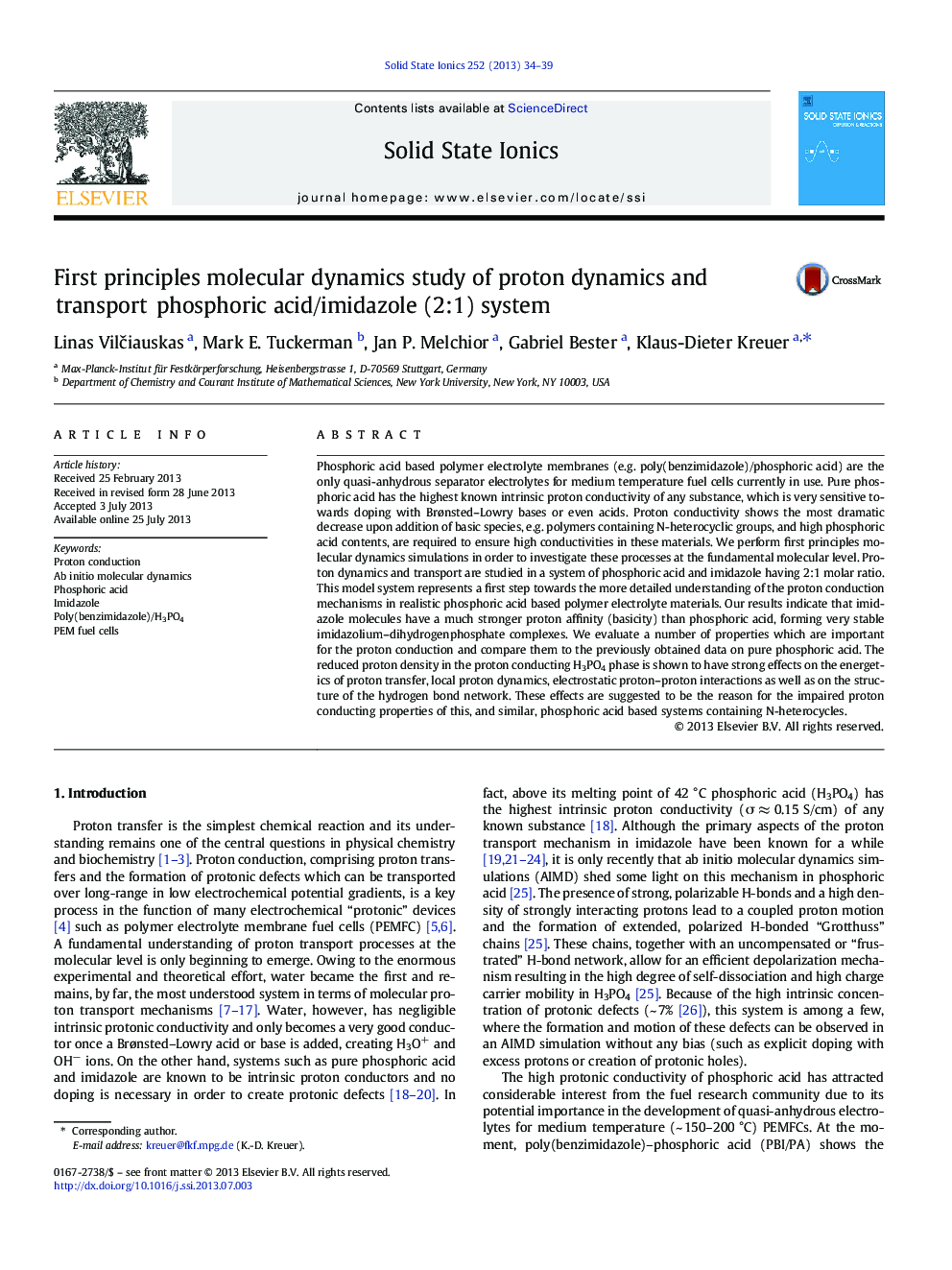| کد مقاله | کد نشریه | سال انتشار | مقاله انگلیسی | نسخه تمام متن |
|---|---|---|---|---|
| 1296576 | 1498290 | 2013 | 6 صفحه PDF | دانلود رایگان |

• We study the proton conduction mechanism in a phosphoric acid and imidazole mixture.
• The system was modeled using Car–Parrinello Molecular Dynamics Simulations.
• Proton transfer leads to the formation of stable ImiH+[H2PO4−] complexes.
• Reduction in proton density and degree of H-bond network frustration.
• The results explain the reduced proton conductivity in N-heterocycle doped H3PO4.
Phosphoric acid based polymer electrolyte membranes (e.g. poly(benzimidazole)/phosphoric acid) are the only quasi-anhydrous separator electrolytes for medium temperature fuel cells currently in use. Pure phosphoric acid has the highest known intrinsic proton conductivity of any substance, which is very sensitive towards doping with Brønsted–Lowry bases or even acids. Proton conductivity shows the most dramatic decrease upon addition of basic species, e.g. polymers containing N-heterocyclic groups, and high phosphoric acid contents, are required to ensure high conductivities in these materials. We perform first principles molecular dynamics simulations in order to investigate these processes at the fundamental molecular level. Proton dynamics and transport are studied in a system of phosphoric acid and imidazole having 2:1 molar ratio. This model system represents a first step towards the more detailed understanding of the proton conduction mechanisms in realistic phosphoric acid based polymer electrolyte materials. Our results indicate that imidazole molecules have a much stronger proton affinity (basicity) than phosphoric acid, forming very stable imidazolium–dihydrogenphosphate complexes. We evaluate a number of properties which are important for the proton conduction and compare them to the previously obtained data on pure phosphoric acid. The reduced proton density in the proton conducting H3PO4 phase is shown to have strong effects on the energetics of proton transfer, local proton dynamics, electrostatic proton–proton interactions as well as on the structure of the hydrogen bond network. These effects are suggested to be the reason for the impaired proton conducting properties of this, and similar, phosphoric acid based systems containing N-heterocycles.
Journal: Solid State Ionics - Volume 252, 1 December 2013, Pages 34–39